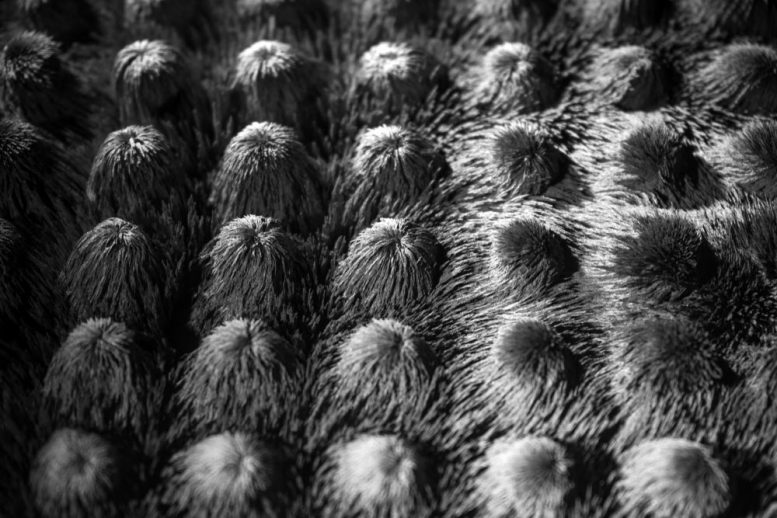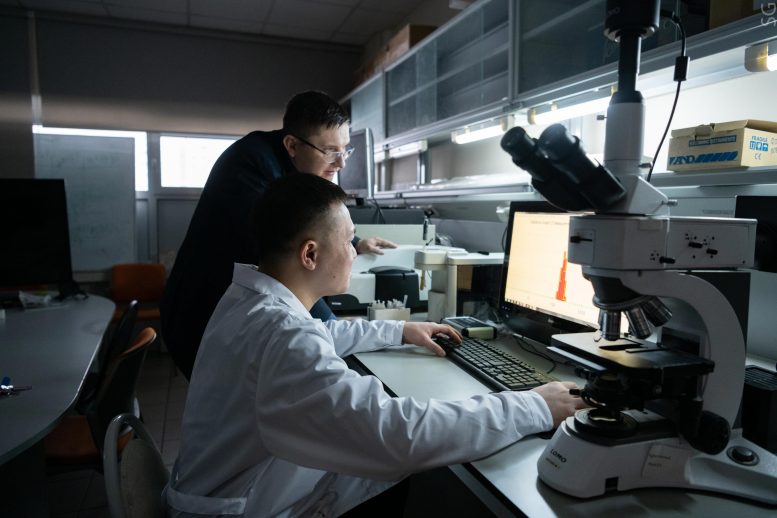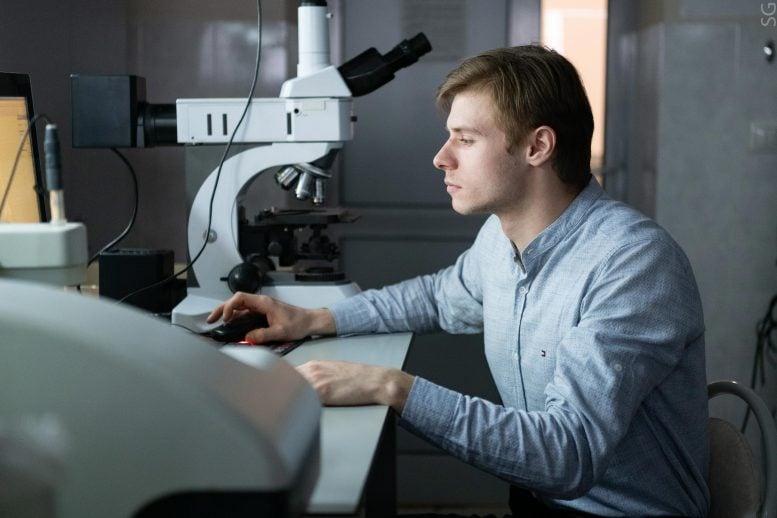
An international research team led by NUST MISIS has developed a new iron-cobalt-nickel nanocomposite with tunable magnetic properties. The nanocomposite could be used to protect money and securities from counterfeiting.
Presently, research on magnetic nanomaterials with controlled magnetic characteristics is one of the most promising fields. Due to their small size, as well as their excellent magnetic and electric properties these materials have a broad range of potential applications from mobile devices to space technologies.
The new iron-cobalt-nickel nanocomposite was obtained by chemical precipitation, followed by a reduction process.

Yuri Konyukhov, Deputy Head of the Department of Functional Nanosystems and High-Temperature Materials at NUST MISIS and Nguyen Tien Hiep, postgraduate student at NUST MISIS. Credit: Sergey Gnuskov, NUST MISIS
“This method is simple and, most importantly, it allows the properties of the product to be controlled at each stage of its production, and chemically pure nanopowders to be produced with a given composition, shape, and dispersion,” noted Yuri Konyukhov, Deputy Head of the Department of Functional Nanosystems and High-Temperature Materials at NUST MISIS.
Konyukhov also stressed that the new composite was observed to possess high value of coercivity, which makes the technology applicable e.g. to magnetic rubbers and different magnetically coupled devices. Another potential application is protecting money and securities from counterfeiting.

Nguyen Tien Hiep, postgraduate student at NUST MISIS. Credit: Sergey Gnuskov, NUST MISIS
“The efforts of the scientific community have been recently focused on protecting humans and electronic devices from electromagnetic radiation. The development of thin, flexible and relatively transparent metal-polymer composites for EMI shielding is a promising research direction. The use of the new nanocomposite with controlled magnetic properties as the magnetic filler could lead to a breakthrough in EMI protection,” added Yuri Konyukhov.

Yuri Konyukhov, Deputy Head of the Department of Functional Nanosystems and High-Temperature Materials at NUST MISIS. Credit: Sergey Gnuskov, NUST MISIS
Reference: “Impact of Iron on the Fe–Co–Ni Ternary Nanocomposites Structural and Magnetic Features Obtained via Chemical Precipitation Followed by Reduction Process for Various Magnetically Coupled Devices Applications” by Tien Hiep Nguyen, Gopalu Karunakaran, Yu.V. Konyukhov, Nguyen Van Minh, D.Yu. Karpenkov and I.N. Burmistrov, 29 January 2021, Nanomaterials.DOI: 10.3390/nano11020341